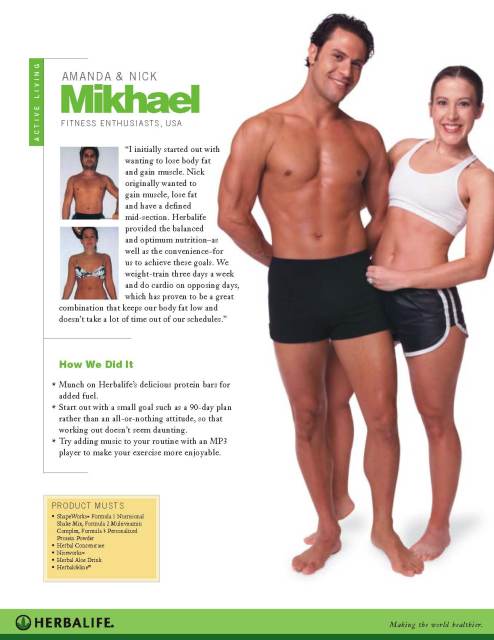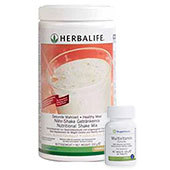eating healthy...
Question
Hi,
To give some background, I am 36 yrs old, 5'11" and weigh 230lbs. I also take pills for blood pressure and cholesterol. It was 180 total cholesterol with 42 hdl, 123 ldl and 75 triglycerides. That was two months ago. Last years test was 150 total cholesterol with 35 hdl, 100ldl and 74 tri's. I know the basic facts of doing cardio to lose some weight, reduce beer intake, smoke less, get more active and get into shape. My question is this. How do I regulate or atleast watch what I eat to make my body more receptive to good cholesterol and not bad, as is the case for my family history? The doc always told me what I was eating was good for me, but now it seems I am on a roller coaster spiral downwards. Is there something I can cutout or eat more of to offset this rise in cholesterol? When I first started Lipitor(for cholesterol) I went from 230 total to 135 total, then I started on the way back up, as it would appear from my last visit. I'm just wondering what I can do, aside from the obvious exercise regimen, to help decrease bad cholesterol and increase good cholesterol? Seems like everything I eat now, no different than before, is starting to affect me negatively. I appreciate your advice.
Mike
Mike,
Let's look at the basics to make sure you have that correct.
A healthy diet low in saturated fats and calories and high in fruits, vegetables, fiber, nuts and fish can reduce your cholesterol by as much as 5-15%.
The basic principles of these diet plans include:
* Eat a diet low in saturated fats (animal fats) and trans-fatty acids (margarine or shortening).
* Eat a variety of fruits and vegetables.
* Eat a variety of grain products, especially whole grains (complex carbohydrates).
* Limit sugars and low nutrient foods high in sugar such as soda pop, candy, etc. (simple carbohydrates).
* Eat an appropriate number of calories to maintain a healthy weight.
Saturated fats tend to raise levels of cholesterol and LDL (bad lipid). They come from animals (also coconut and palm seed oil) and are solid at room temperature. Examples: butter, cheese, lard, creams, fatty meats like sausage and bacon.
Trans-fatty acids tend to increase LDL (bad lipid) and decrease HDL (good lipid). They are found in man-made foods like margarine and shortening. They are listed under ingredients as "partially hydrogenated oils".
Unsaturated fats are the desired fats that should replace, whenever possible, saturated fats in your diet. Saturated fats are typically liquid at room temperature. All plant foods that have oils or fats will have a combination of both mono- and polyunsaturated fats.
Monounsaturated Fats are found in olive oil, canola oil, safflower oil, avocados, and nuts (hazelnuts, pecans, and macadamia nuts).
Polyunsaturated fats come in two major categories; omega-6 and omega-3.The major omega-6 fatty acid in the diet is linoleic acid, which can lower LDL. Omega-6 can be found in soybean oil, corn oil, sunflower oil and safflower oil.
Carbohydrates are any food that is not from an animal and can be anywhere along the continuum of complex carbohydrates to simple carbohydrates. Complex Carbohydrates are foods the way Mother Nature intended. High fiber foods like vegetables, whole grains, fruits, nuts and legumes (beans and peas). These foods are higher in fiber and low in sugars. Simple Carbohydrates are foods from processed grains and are usually higher in sugar and low in fiber. For example: candy, cookies, cakes, soda pop, fruit juice, alcohol, and snack crackers.
Now that you know all that, follow these simple rules:
1. Avoid saturated fats and trans-fats.
2. Replace saturated fats with unsaturated fats whenever possible.
3. Avoid simple carbohydrates.
4. Replace simple carbohydrates with more complex carbohydrates whenever possible.
You can lower your LDL by avoiding saturated fats and trans-fats. You can raise your HDL by regular exercise, losing weight, NOT SMOKING AT ALL, eating unsaturated fats in place of saturated fats. Lipitor will help both the LDL and HDL.
There is nothing extra that you can do to "make your body more receptive" to these beneficial changes.
Just because your last cholesterol test came back as less desirable does not mean that you are spiraling down. Lab tests are not always completely accurate (the 180 or 135 result could have been inaccurate), or if you missed a Lipitor dose in the few day before the last test, that could do it.
Hang in there and do what you know is right - don't give up. Wait for the next lab test and see how things are going. Once I have several lab tests for a person, I always tend to ignore any lab test that is way out of whack with no explanation, but often there IS an explanation.
Best of luck!
Todd
- Prev:good food?
- Next:Does food fat make you fat?
Related Articles
-
Skinny/Fat
QuestionI am 6 foot 1 ,155 pounds with thin limbs, but there is s
-
calories for weight loss
QuestionHello, Ive recently started working out and am trying to
-
nutrition & diet
Questioni am 40years old, have little l1,l4,l5 disbulge problem,
-
Losing More Weight
QuestionDear Bret, Hi there, my name is Jordan, Im 18 years old
-
Losing weight post-delivery
QuestionDear Doc, My baby is 1.5 years old and I am back to my ol
-
healthy beverages
QuestionHi George, Normally, Im happy to drink plain water, howev




